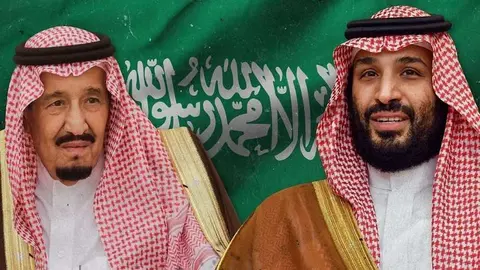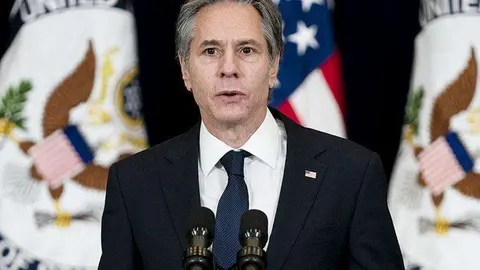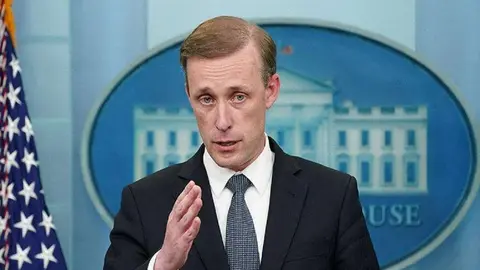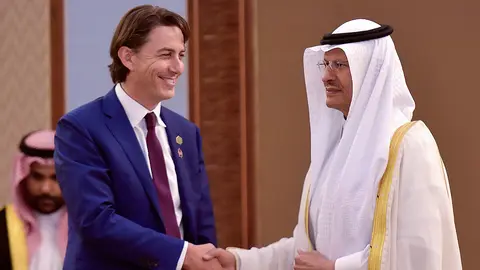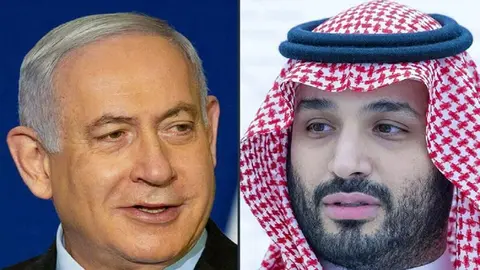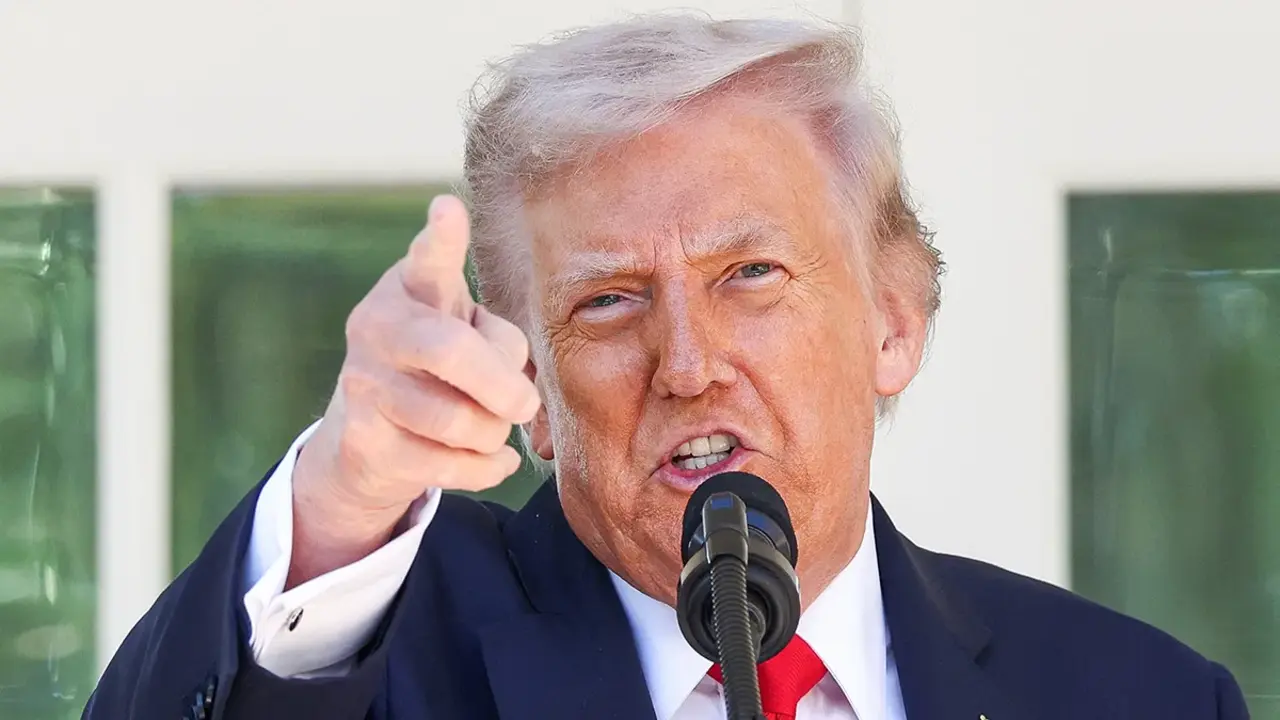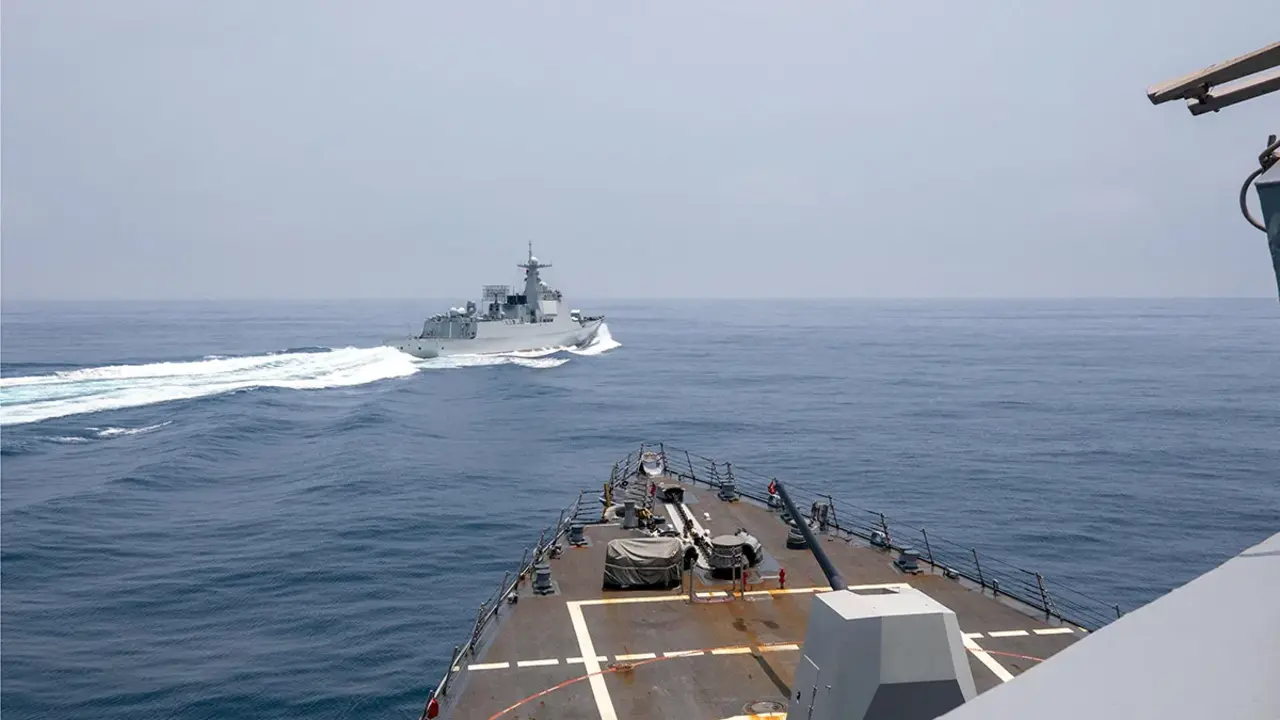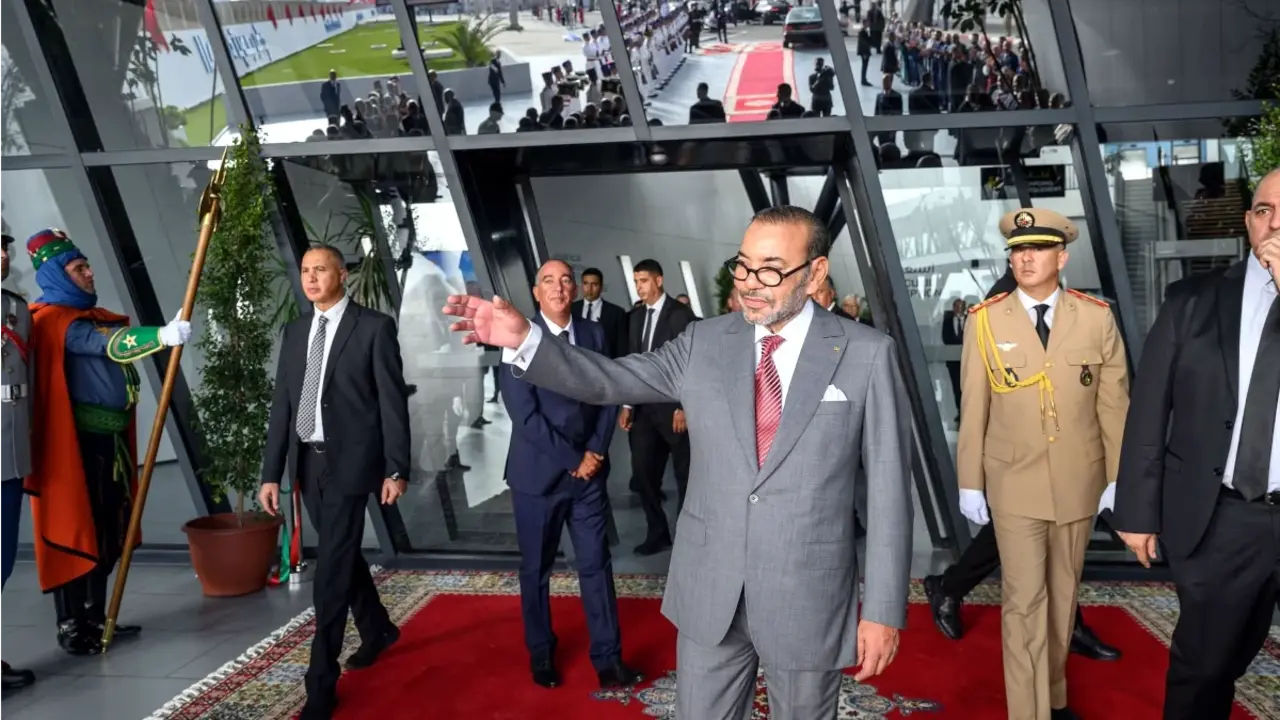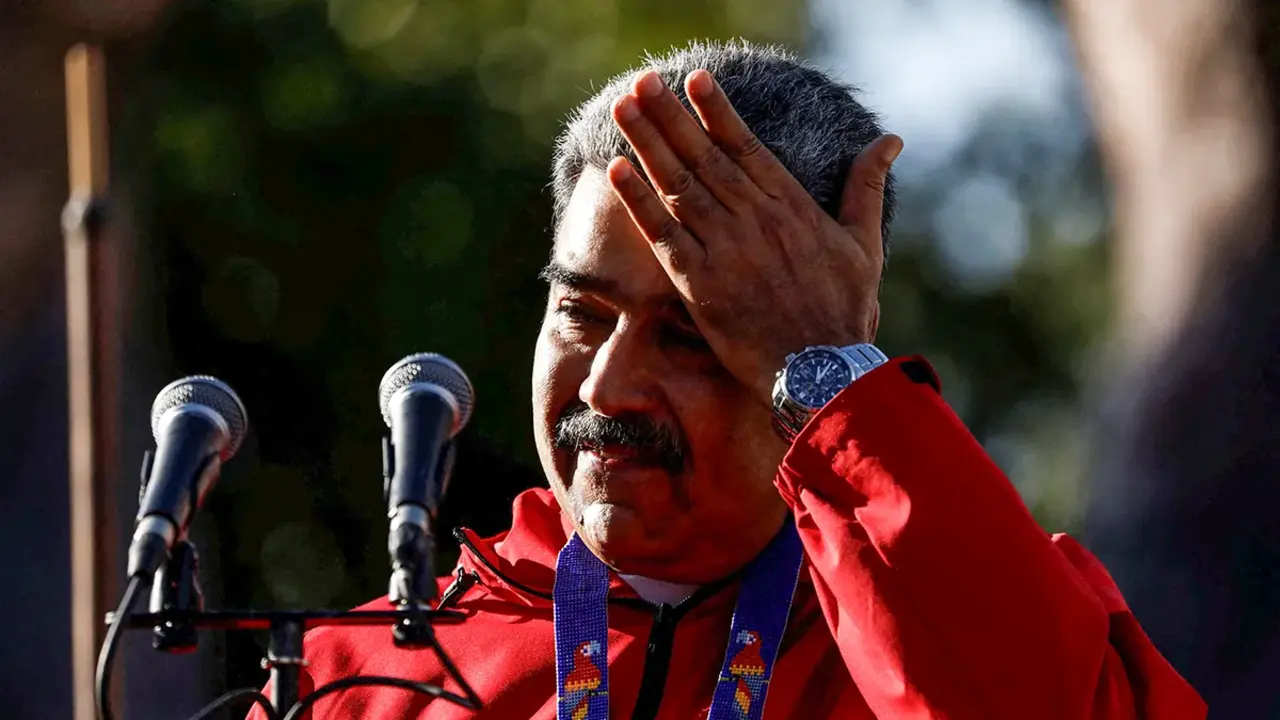Saudi-Israeli peace prospects map out a new Middle East

Saudi Arabia takes quiet steps towards understanding, Israel reaches out to the Kingdom and the US tries to push for normalisation.
The Middle East could be about to witness one of the most significant developments in recent years. For several months now, a large number of senior US officials have been travelling to Saudi Arabia with one goal in mind: to bring the Kingdom and Israel to a peace agreement. Although official White House or State Department communiqués refer to stability in the region or progress in the war in Yemen when reporting on US-Saudi meetings, normalisation between the two countries is a key issue in the meetings.
Likewise, senior Israeli officials visit Washington to discuss the situation with their American partners, as was the case with the recent trip of Mossad director David Barnea, who discussed the steps being taken by Joe Biden's administration towards normalisation with senior White House and CIA officials, US sources told Axios.
Saudi Arabia could thus become the next Arab country to establish relations with Israel, following in the footsteps of others such as Morocco, the United Arab Emirates and Bahrain, which signed peace with Jerusalem under the Abraham Accords.
However, the scale and impact of normalisation between Saudi Arabia and Israel would be greater due to the Kingdom's importance in the Arab-Muslim world. Saudi King Salman bin Abdulaziz is considered the Guardian of the Holy Places by millions of Muslims around the world, while the nation - home to Islam's holiest cities of Mecca and Medina - is presented as the greatest Arab and Muslim power.

Thus, if a Kingdom with such weight and symbolism for Islam recognises and establishes ties with Israel, it could change the outlook of thousands of Muslims and Arabs towards the Jewish state. "Israeli-Saudi peace is an important milestone that would send a very clear message to the entire Arab and Muslim world that Israel is part of the Middle East and is here to stay," explains Israeli journalist Emily Schrader.
Israel's position in the region would undoubtedly be strengthened by a peace deal with the Kingdom. As Frida Ghitis, a columnist for CNN and The Washington Post, points out, diplomatic normalisation for Israel "would be a big step toward realising a dream it has had since its founding, the prospect of living in peace with its neighbours". But it would also be beneficial for Saudi Arabia, as, according to Ghitis, "the Kingdom would be in a much stronger position, especially vis-à-vis its long-time rival, Iran".
Since the signing of the so-called 'Deal of the Century', normalisation between Israel and Saudi Arabia has become the next step and the new goal of the Biden administration. However, prior to the Abraham Accords, Israeli-Saudi peace began to be built years ago through secret meetings to address security in the region and, above all, the threats posed by Iran. There was even speculation about a possible meeting in 2020 between Israeli Prime Minister Benjamin Netanyahu and Saudi Crown Prince Mohammed bin Salman, although senior Saudi diplomats have denied this.

The Islamic Republic has played a key role in the rapprochement between Saudi Arabia and Israel. Both countries look askance at Tehran's strong influence in the region, especially in the so-called 'Shiite Crescent'. Indeed, Mohammed bin Salman himself has acknowledged that Israel is not an enemy, but "a potential ally" in various respects. Likewise, Israel has presented itself as a partner for the Kingdom, stressing that Iran is the common enemy.
In this regard, Tehran has already spoken out about possible normalisation between the two nations, noting that a peace agreement between Riyadh and Jerusalem would "harm regional peace and stability". Only a few months ago, Iran and Saudi Arabia re-established ties after years of dispute thanks to Chinese mediation. However, Schrader notes, "peace between the two has not gone as well as they would have the public believe".
Regarding Iran's reaction to the possible normalisation, the Israeli journalist stresses that "what the Iranian regime fears most is Israeli-Arab peace". It is obvious that Tehran will not welcome a peace agreement between Riyadh and Jerusalem, as normalisation would leave the regime "increasingly isolated in its position vis-à-vis Israel", as Ghitis points out.

Small steps, big impact
Riyadh-Jerusalem ties have grown significantly closer following the Abraham Accords, a treaty that, unlike in other countries, was not criticised by the Kingdom. Indeed, senior Saudi officials, such as Foreign Minister Prince Faisal bin Salman, have admitted benefits following the signing of the accords. Similarly, Bandar bin Sultan al-Saud, the Kingdom's former intelligence chief and former Saudi ambassador to Washington, went so far as to criticise Palestinian leaders for their obstruction of Israeli-Arab negotiations and their rejection of the Abraham Accords.
Last summer, relations between the Kingdom and Israel took another step forward after Riyadh announced the opening of its airspace to all civilian airlines, including Israeli airlines. President Biden welcomed this decision, calling it 'a push towards greater Israeli integration in the region'. Following Saudi Arabia, Oman also decided to open its airspace to Israeli airlines in February, a move that Israeli Foreign Minister Eli Cohen called "a historic decision".

The Israeli government has been trying to reach an agreement with Riyadh to establish direct flights from Tel Aviv to the Kingdom in order to facilitate the pilgrimage to Mecca - an obligation of all Muslims - for all Israeli Arabs. "I hope this will happen in March next year," Cohen was quoted as saying recently by KAN. The Israeli diplomacy chief recalled that Muslims represent 20% of the country's population and that, currently, to travel to Saudi Arabia's holy cities they must take a route through Jordan, which "quadruples the costs".
The two countries have also recently entered into energy partnerships. Despite not maintaining diplomatic relations, Israel's SolarEdge Technologies Inc. has agreed with Saudi Arabia's Ajlan & Bros Holding to deploy renewable energy in the Gulf state, as Bloomberg reported earlier this week.

Energy could be one of the partnership strengths between the two countries, as well as other innovative industries and technologies. "Israel's technological prowess combined with Saudi capital would benefit both countries," notes analyst Niranjan Marjani. Marjani also believes that normalisation "could lead to greater diversification of Saudi Arabia's international relations and bring greater economic benefits to the Kingdom".
On the other hand, the Kingdom has made progress on peace with Israel through education. Education is a key tool for transforming society and building bridges with other cultures and peoples. Aware of this, the Saudi authorities have decided to remove anti-Semitic and anti-Zionist references from school textbooks. For example, phrases such as "Zionist enemy" and "Israeli occupation" have been removed.
According to an IMPACT study, the changes made to the Saudi curriculum this year, compared to the last five years, are positive with regard to anti-Israeli and anti-Semitic content. On the other hand, progress has also been made on gender issues and content has been added against the Lebanese Hezbollah group, the Houthis in Yemen - backed by Iran - and the Muslim Brotherhood movement.

However, as Ynet reminds us, textbooks still do not recognise Israel and do not teach about the Holocaust. Similarly, maps completely ignore Israel's existence and do not mention its name, Zionism is still described as a European colonial and racist movement, and there are still places where it is described as the 'Zionist entity'.
Still, the changes pushed by the Saudi crown prince encourage hopes for peace and tolerance in the Middle East and promote Israel's integration in the region. "The changes that Bin Salman is making are extremely bold, unprecedented and a sign of things to come," says Eric Agassi, vice president of IMPACT, as quoted by Ynet.
The US role and the consequences for the Palestinians
As Saudi Arabia takes discreet steps towards understanding and Israel reaches out to the Kingdom, the United States is trying to achieve a long-awaited normalisation that would be a major achievement for Washington's foreign policy in the Middle East, especially now that China is taking a growing interest in the region.
The Biden Administration has revealed that peace between Riyadh and Jerusalem is a national security interest, and so the possibility of Washington backing Riyadh's potential civilian nuclear programme in exchange for re-establishing relations with Israel has been mooted.
This normalisation between Israel and Saudi Arabia is so important for the US because it would allow it to regain its position in the Middle East. Equally, such a milestone would be a major foreign policy achievement ahead of next year's elections. "A deal with Saudi Arabia would put the Kingdom on Washington's side, at a time when it has moved closer to China. In the global competition between China and the West, it would be a victory for the West," explains Ghitis.

However, as Arab News columnist Osama Al Sharif recalls, "Biden was aggressive towards Saudi Arabia before and after his election. The Saudis did not forget or forgive. So they are playing hardball. "In addition, the new Saudi leadership is changing the way it relates to the United States. They are reasserting themselves as a regional power with their own foreign policy priorities, hence their position vis-à-vis Russia and their closer ties with China," he adds.
Despite the progress and goodwill, Saudi Arabia's official position - conveyed by the Foreign Minister - remains clear: "normalisation can only succeed if the Palestinian issue is addressed first". Many analysts believe that, to make progress on the Palestinian issue, normalisation between the Kingdom and Israel is necessary first, something that many see as an impetus for peace between Israelis and Palestinians.

"I absolutely believe that the Israeli-Palestinian conflict will benefit from peace with Saudi Arabia because it paves the way for Palestinian leaders to recognise the reality that Israel is not going anywhere and that the more they try to promote an extremist vision of 'wiping Israel off the map', the more they hurt the Palestinians and the future Palestinian state," explains Schrader.
For his part, Ghitis believes the Israeli-Palestinian conflict is deadlocked for many reasons, and these will not go away if a peace agreement is signed between Saudi Arabia and Israel. "The Palestinians are deeply divided. Hamas, which controls Gaza, is unwilling to recognise Israel's right to exist. The Palestinian Authority is riddled with corruption and dysfunction," says the columnist, who also recalls that many Palestinians have been deeply disappointed to see one Arab country after another establish diplomatic relations with Israel.

Optimism despite challenges
Despite the progress and positive steps taken by both sides, the situation remains uncertain as far as normalisation is concerned. Recent months have seen several spirals of violence between Israelis and Palestinians that have left dozens dead and wounded. Moreover, as tensions mount in the West Bank, the current Israeli-led coalition is ill-suited to reach a peace agreement with Saudi Arabia. "Israel's far-right government is so controversial and unpopular that it is not easy for the Saudis to engage at the moment," says al-Sharif.
Riyadh wants clear commitments that benefit the Palestinians. As The Jerusalem Post points out, Jerusalem's pledge not to annex settlements over the next few years to establish relations with the United Arab Emirates is not enough for the Saudis. And although Netanyahu tries to divert the Palestinian issue from normalisation by focusing on technological and military cooperation and building an alliance against Iran, for the Kingdom of Saudi Arabia the benefits of the Palestinians are key.

For this reason, and with the aim of facilitating normalisation with Riyadh, there has been talk of possible Israeli concessions to the Palestinians, although members of the Religious Zionism Party - a member of the governing coalition - have already announced that they will not accept such concessions. "This is the consensus of the entire right wing," said Minister Orit Struck, according to KAN. Similarly, Israeli National Security Advisor Tzachi Hanegbi has stressed that Israel "will not concede anything that will erode its security".
In addition to progress on the Palestinian issue - such as halting plans to build settlements in the West Bank - Riyadh hopes to secure a NATO-level defence alliance and support for a civilian nuclear programme from the US in exchange for diplomatic normalisation with Israel.

Despite statements by some members of the Israeli government regarding concessions to the Palestinians, other members of the cabinet, such as the foreign minister, have been optimistic about the process. Likewise, Netanyahu himself has stressed that his country could link up with Saudi Arabia via a railway during the presentation of a railway plan that would connect the northern Israeli city of Kiryat Shmona with Eilat, located on the Red Sea. According to the prime minister, the route "will be able to link Israel with Saudi Arabia and the Arabian Peninsula in the future". "We are working on that too," he added.
The possible normalisation between Israel and Saudi Arabia opens up a new horizon in a changing Middle East. Given the Abraham Accords and their impact, peace between Riyadh and Jerusalem could yield great benefits, both for the two countries and for the region as a whole.
Americas Coordinator: José Antonio Sierra.

